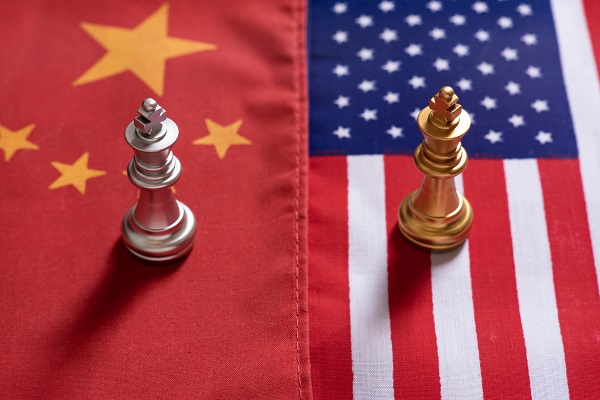 US military planners are taking notice of a suggestion by two military scholars calling for the destruction of semiconductor foundry company Taiwan Semiconductor Manufacturing Co. (TSMC), whose fabs produce advanced microprocessors used in HPC and AI, in the event China invades the island nation
US military planners are taking notice of a suggestion by two military scholars calling for the destruction of semiconductor foundry company Taiwan Semiconductor Manufacturing Co. (TSMC), whose fabs produce advanced microprocessors used in HPC and AI, in the event China invades the island nation
A news story in today’ edition of Data Center Times cites the Nikkei Asia news service and a paper in the U.S. Army War College’s scholarly journal, Parameters, discussing the possibility of Taiwan adopting “’a scorched earth policy’ and wipe out its own semiconductor foundries in the wake of any Chinese invasion as a deterrent, U.S. military academics have suggested.”
“The authors argue that in the face of China’s growing military power and sophistication, threats or demonstrations from US military are unlikely to work, and any actual conflict on the island may actually be won by the People’s Republic of China,” the Data Center Times article reported. “Instead, the paper, Broken Nest: Deterring China from Invading Taiwan, suggests a ‘broken nest’ approach wherein Taiwan destroys its own semiconductor industry – including global chip powerhouse TSMC – upon the news of any invasion from China to make it a less attractive target and scupper China’s own technology ambitions.”
The speculation underscores the geopolitical stakes involved in high-end data center server chips that power supercomputers and artificial intelligence. TSMC, whose customers include HPC-AI powerhouse chip designers NVIDIA and AMD, is of the utmost economic value to Taiwan and to the global economy. It’s noteworthy that in the face of threats from China, TSMC last year began construction of a fab in Arizona.
“The United States and Taiwan should lay plans for a targeted scorched-earth strategy that would render Taiwan not just unattractive if ever seized by force, but positively costly to maintain,” according to the paper. “This could be done most effectively by threatening to destroy facilities belonging to the Taiwan Semiconductor Manufacturing Company, the most important chipmaker in the world and China’s most important supplier.”
The story in Nikkei Asia stated that the Parameters article was the most-downloaded paper published by the U.S. Army War College in 2021 – even though the paper wasn’t published until mid-November. If TSMC were destroyed in the event of an invasion by China, “Samsung, based in U.S. ally South Korea, would be the only alternative for cutting-edge designs,” stated the article. “If TSMC went offline, ‘China’s high-tech industries would be immobilized at precisely the same time the nation was embroiled in a massive war effort,’ the authors note. ‘Even when the formal war ended, the economic costs would persist for years,’ the paper suggests, adding that such a scenario could hurt the legitimacy of the Chinese Communist Party.”
The paper’s authors, Dr. Jared M. McKinney (a chair at the eSchool of Graduate Professional Military Education, Air University, and reviews editor of the Journal of Indo-Pacific Affairs) and Dr. Peter Harris (assoc. professor at Colorado State University and Indo-Pacific Perspectives editor of the Journal of Indo-Pacific Affairs) also suggest that to make the threat credible, Taiwan could adopt an approach harkening back to “the Doomsday Machine” in the Cold War film “Dr. Strangelove”: “An automatic mechanism might be designed, which would be triggered once an invasion was confirmed,” McKinney and Harris wrote.
The McKinney-Harris strategy arises amid increasing doubts that a conventional military strategy, such as deployment U.S. Navy ships near Taiwan, would prevent China from invading the island country. “The People’s Liberation Army’s goal for a successful invasion is 14 hours, a Chinese analyst with connections in the PLA Navy told the authors, while the (Peoples Liberation Army) projects the U.S. and Japan to need 24 hours to respond,” stated the Nikkei Asia article. “If this scenario is close to being accurate, China’s government might well be inclined to attempt a fait accompli as soon as it is confident in its relative capabilities,” McKinney and Harris write.
“If the U.S. and Taiwan wish to deter China from invading,” Harris said, “then they should look for means of doing so that do not rely on the threat of U.S. military reprisals. Relying exclusively on military threats is becoming less credible and thus more dangerous.”



